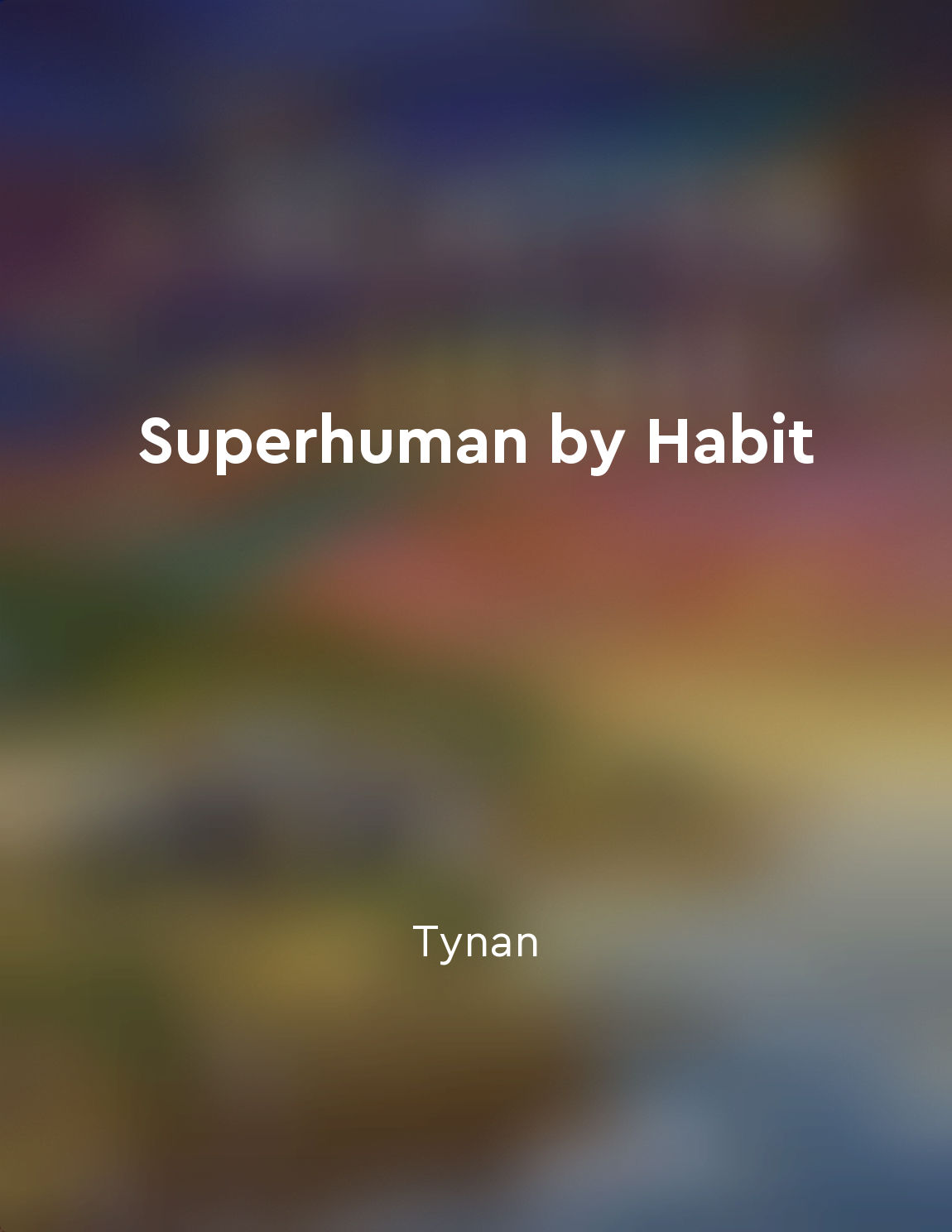Audio available in app
Identifying cues can help us change our habits from "summary" of The Habit by Susan Morse
Identifying cues can help us change our habits. By paying attention to the cues that trigger our habits, we can begin to understand the patterns that drive our behaviors. These cues can be anything from a specific time of day to a particular emotional state. Once we have identified these cues, we can start to see how they influence our habits. For example, if we notice that we always reach for a snack when we are feeling stressed, we can start to recognize stress as a cue for our snacking habit. With this awareness, we can then work on finding healthier ways to cope with stress, breaking the cycle of stress leading to snacking. In addition to identifying cues, it is also i...Similar Posts
Focus on the process, not just the outcome
When you focus solely on the outcome, you miss out on the richness and depth that the process has to offer. The process is wher...
Cognitive dissonance can be a powerful motivator for change
Cognitive dissonance is the discomfort that arises when a person holds two conflicting beliefs or values. When faced with cogni...
Habit stacking can streamline your daily routine
One powerful way to build new habits is to stack them on top of current ones. This concept is known as habit stacking, where yo...
Small wins can lead to bigger successes
The idea that small wins can pave the way for larger victories is a central theme in the book "The Power of Habit: by Charles D...
Implement the 10Minute Rule to overcome procrastination
One effective strategy to combat procrastination is to apply the 10-Minute Rule. This rule involves committing to work on a tas...
Lead with integrity and ethical principles at the forefront of your decisions
Leading with integrity and ethical principles means making decisions based on a strong moral compass and a commitment to doing ...
Be patient and trust the process of habit evolution
One of the key principles of habit formation is being patient and trusting the process of habit evolution. Habits take time to ...
Habit formation is a continuous process
Habit formation is not an event, but a process that unfolds over time. It is a continuous journey rather than a one-time occurr...

Visualize the end result of your habits
When you're trying to build a habit, it's easy to get caught up in the day-to-day actions. You focus on going to the gym every ...
Start small with your habits
When it comes to building habits, starting small is key. Why? Because starting small sets you up for success. Think about it: i...
